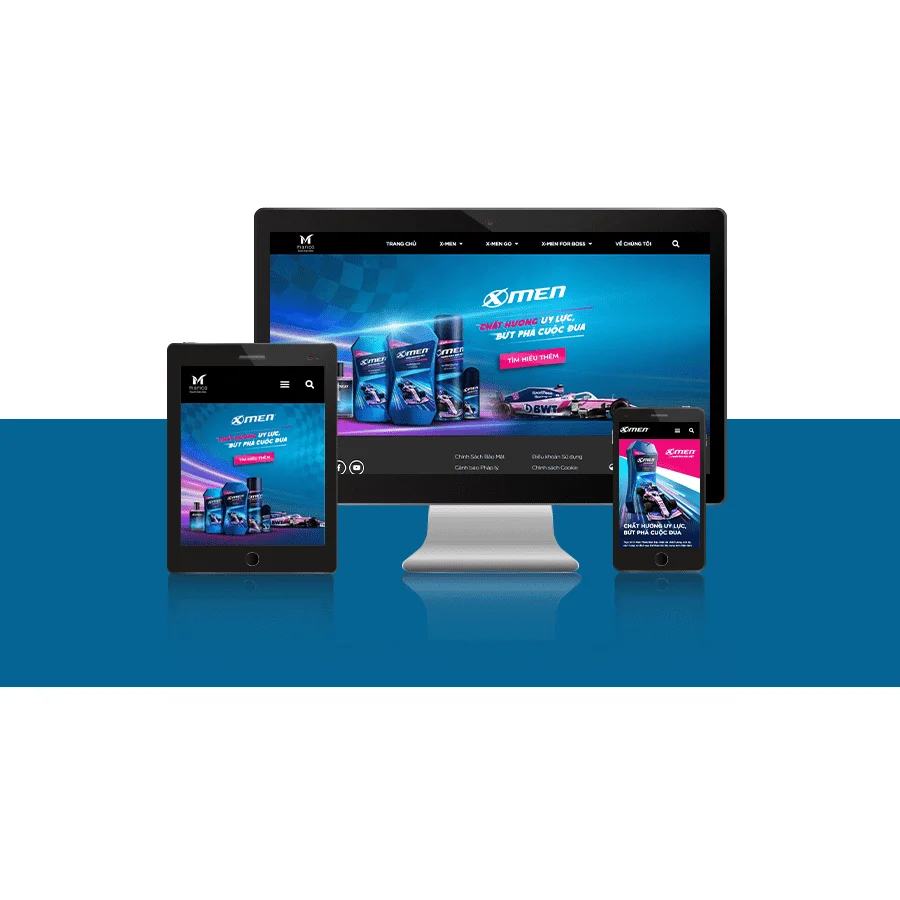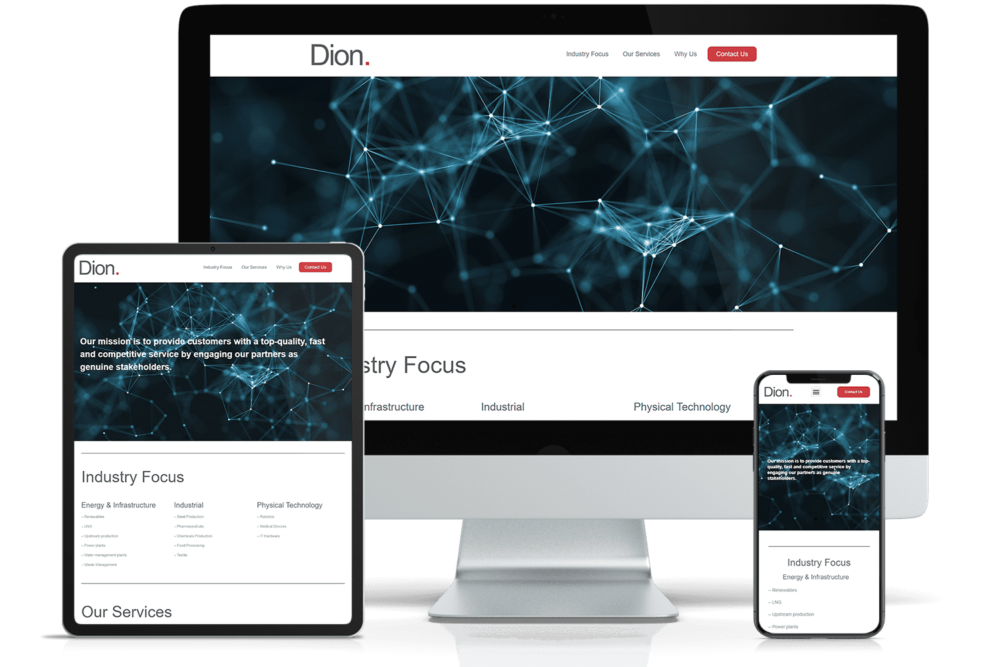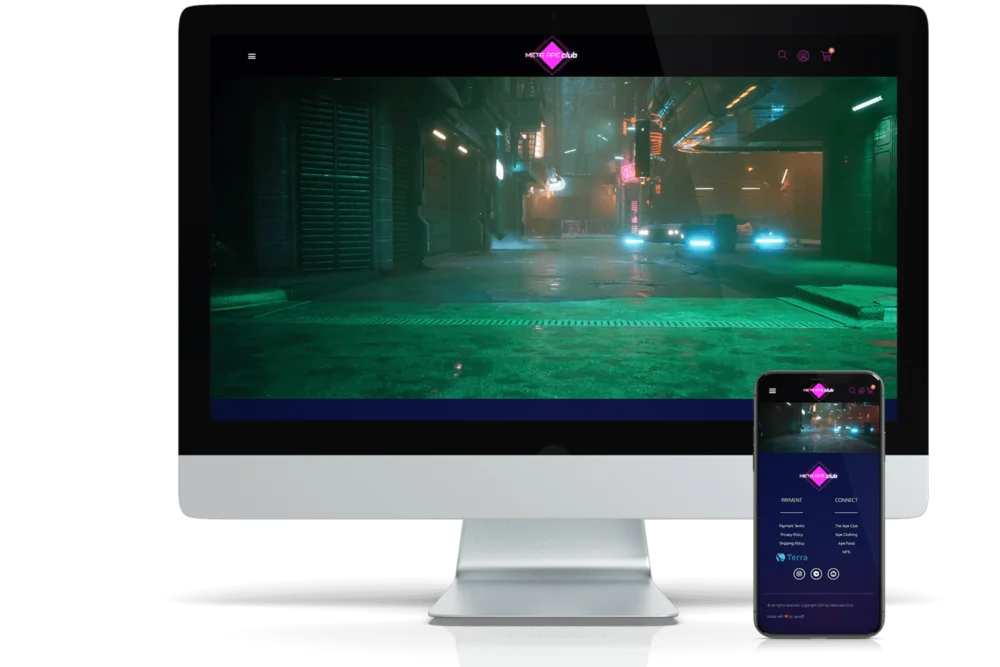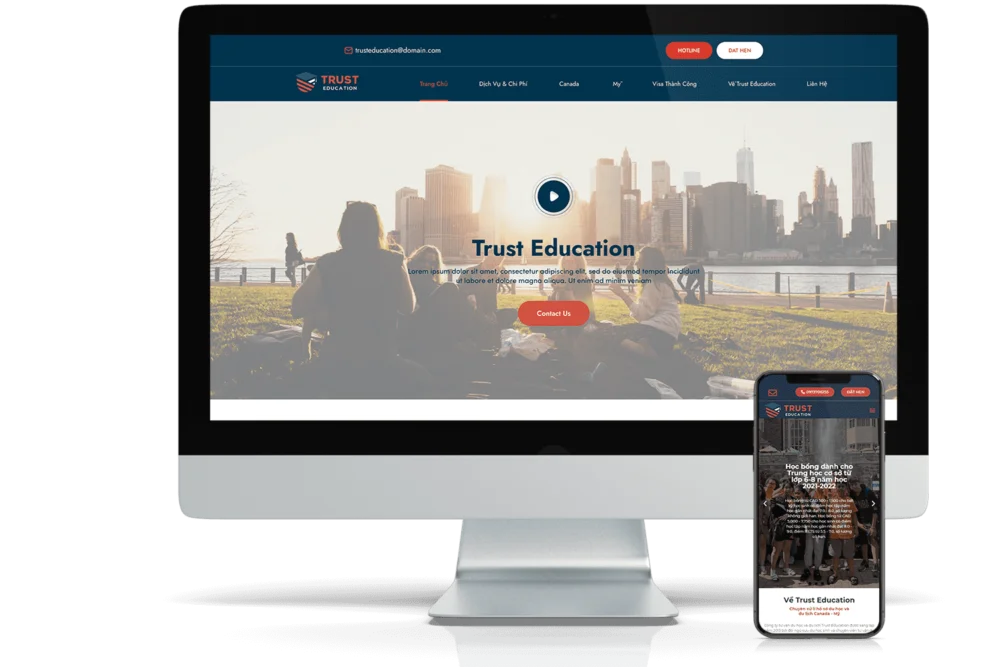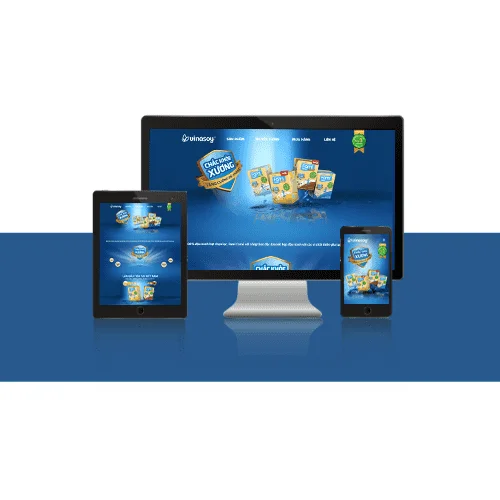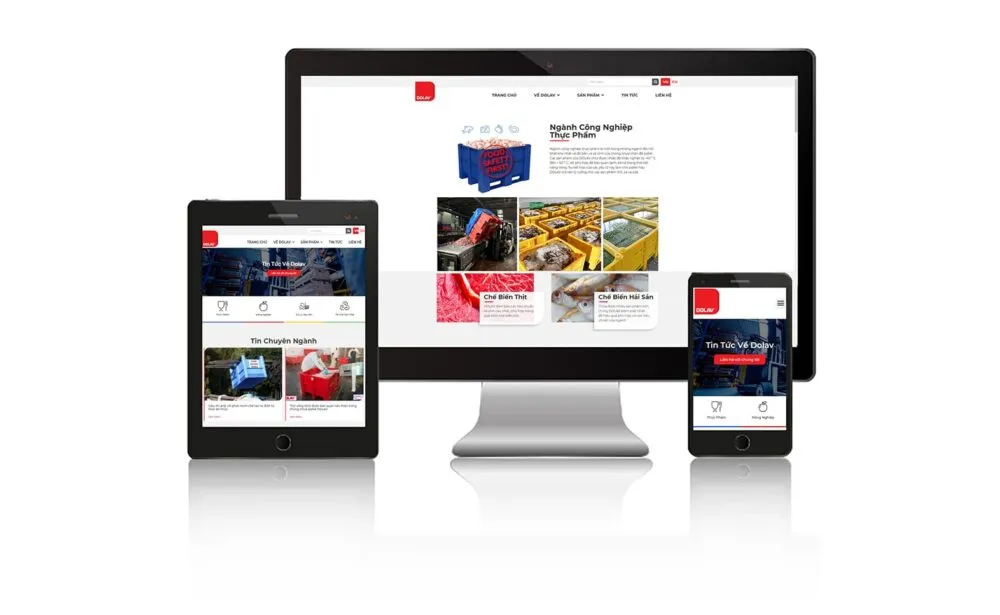Onsite and Offsite are also known as OnPage SEO and OffPage SEO. Those are the two main components of the search engine optimization (SEO) process. For maximum exposure to search engine results and for higher rankings, you need to understand the difference between the two and how to use them better.
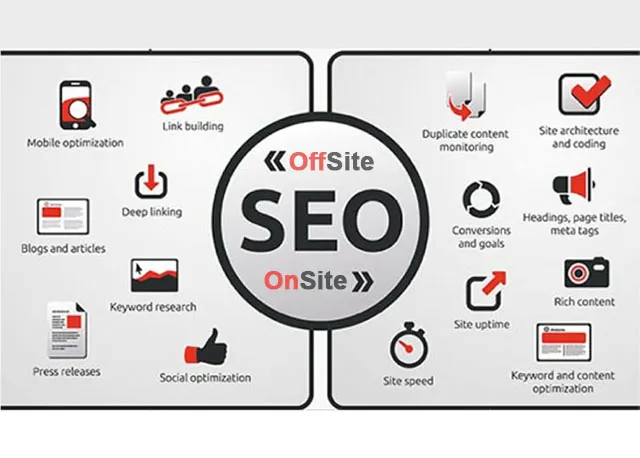
What is OnSite SEO?
Onsite SEO is the process of making your website search engine friendly.
Simply put, this means adjusting certain elements of your website so that search engines can crawl and understand your site's content and structure.
The more information and data they can get from your site, the higher your chances of being in their index.
Working on and fixing potential Onpage SEO related issues is the first step you should take when optimizing your website for search engines and especially Google.
Most of the elements of Onsite SEO are important
Onsite SEO is very easy for you to get editing rights, because it is your website that you manage. There are a few things you can check and fix a few errors to avoid to make sure everything is set up the way it should.
The most important on-page SEO factors are:
Your page title and description – If you are into SEO, you must read this a million times because it is one of the most important SEO factors.
The page title and description is what search engines 'read' first when crawling the page.
If your titles and descriptions aren't optimized the way search engine crawlers want them to, you're making your task harder and this is not in your favor.
How to title optimization and your description?

The rules are very simple:
- Keep the title close to 60 characters and the description no more than 150 characters.
- Avoid keyword stuffing, which means adding keywords to the title or description that don't make sense, but try to give search engines and users a good idea of what the page is about.
A good approach when optimizing these titles is to come up with titles and descriptions that are compelling and encourage users to click, but at the same time make sure they are relevant to what people might be searching for ( relevant to the content of the page).
There are many tools to help you optimize your titles, I usually do an iterative process and the process goes like this:
- Think about search queries that users might use to find your site
- Pass those queries through Google, Google's keyword tool (Google keywrods Tool) to find search volume, keyword difficulty, and what others are using as titles for those queries.
- Determine which keywords (preferably long tail keywords) are right for your page
- Try to include those keywords in your title, and make it more friendly and engaging.
For example:
Search term: 'benefits of bananas'
Key word (after research): 'Health benefits of bananas'
Title: '10 great health benefits of eating bananas every day'
Description: “Eating bananas every day provides a number of health benefits. There are 10 main effects that will surely surprise you! Read on to learn more about it.'
H1 tag: A well-optimized page should have only one H1 tag and some h2, h3 tags. The h1 tag is usually the same as the page title (though it's not necessarily the same).
A quick way to find out if your page complies with this rule, is to right-click anywhere on your page and choose VIEW SOURCE from the pop-up menu.
Then click CTRL-F to open the 'Find' box and search for H1. if you see more than two cases <h1> and </h1>, ask your Website developer to fix the error so that the page has only one H1 tag.
ALT text for images: If you use images in text (and you should), you need to make sure that the ALT text has a meaningful value that will give search engines a good indication of what the image is about and how This formula is related to your page.
As an example for the image below, I've set the ALT text to 'OnPage SEO Guidelines'.
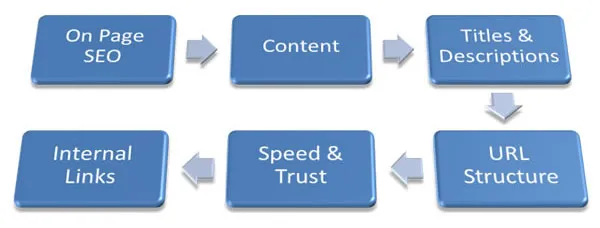
Internal links (internal links): I'm probably the person who pays the most attention to internal links because:
- They enhance the user experience
- They are safe to use
- They help search engines discover more pages from your site
- They help you create strongly relevant content
- They decrease bounce rate Web's
- They help you lead your readers to the most important pages on your site.
Read my article on best practices of internal links for more details but as a general rule, when you do an onsite SEO assessment, make sure your pages have useful internal links for users to see and click.
Accessible ability: None of the techniques above are helpful if search engines can't access your site.
This is a very basic thing, but you need to make sure you don't accidentally block crawlers from accessing your pages.

The best way to find out if your Website has accessibility problems is to register your website with Google Search Console and click the 'Inspect URL' option.
By performing this check, Google will let you know if something is preventing them from indexing your site correctly.
Content: I can't help stressing the importance of high-quality, interesting, and unique content throughout the entire SEO process.
If you do not have content that has those characteristics, then you have a lot of difficulties, let alone done SEO Onite and SEO Offsite.
I won't go into a lot of detail here about the content, you can read my post on evergreen content to learn how to create content that ranks well and this post explains how it takes to write your posts. Friend. (LINK TO THAT ARTICLE)
What you need to always keep in mind when working with websites and digital marketing is that content always comes first and everything else comes after.
Other Onsite SEO factors:
Besides, other SEO factors to consider when doing onsite optimization are:
- Well-formed URLs (words separated by '-')
- Proper use of breadcrumbs (For example this page you see: Home » Blog » SEO Knowledge » What is the difference between Onsite and Offsite SEO?)
- Use structured data
- Website speed
- Mobile-friendly
- Transparency (who wrote the post)
- Broken link
- Properly configured 404 pages
For a complete list of SEO factors, see SEO Audit Checklist mine.
Suggested related articles: 11 OnPage SEO optimization techniques that will increase rankings
What is Offsite SEO?
I have spent a lot of time talking about Onsite SEO because I consider it the first step you need to take before thinking about Offsite SEO.
However, OffPage SEO is equally important and necessary.
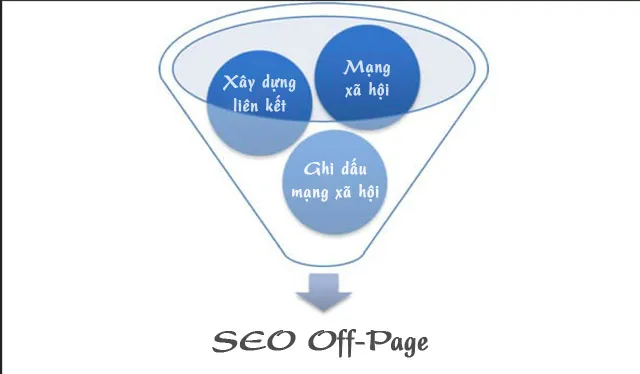
Offsite SEO refers to actions you can take to promote your website on another website (besides advertising).
The most commonly used methods are:
- Links pointing to your site from other websites.
- Social network marketing.
Link building: When users enter a query into the search box (of a search engine), they have to decide which websites to show at the top of the search ranking results table and the order in which they should show them.
To be able to do that in a way that makes users happy with the results, they use several factors (Google is using more than 255 ranking factors) in their ranking algorithm.
The algorithm suffers (either positively or negatively) from links pointing to a website.
If the links come from trustworthy and relevant sites, they are considered “plus points aka votes of trust” and they can help a site rank higher.
On the other hand, if they come from low quality sites, they can lower the ranking of the particular site or even get it in big trouble (Google penalty for example – Google penalties).
Over the years there has been a lot of discussion in the SEO community about natural and unnatural links, allowed practices, and black hat practices but many people still have questions about the overarching approach. this program.
To understand how to use link building correctly, you need to know What is Google saying about links?.
In short, Google considers any type of link created for the purpose of manipulating their algorithm as unnatural.
Lots of unnatural links will eventually lead to a penalty.
This means that you should not buy, sell, exchange or claim links for the sake of increasing your rankings.
What can you do safely?
Don't get into the habit of generating links (especially from low-quality sites) but follow natural links.
Organic links are given to you by other sites because they have found your content and site interesting and worthwhile.
This may sound weird but it works so much better than spending time and effort building links that could get you in trouble.
You need links, don't get me wrong, but you can get them naturally if you have good content and if you can get your content in front of a lot of people.
What is the best way to do this? Through content marketing, solid promotion tactics, writing articles to quality pages with the desire to attach links, and social media marketing.
Content marketing can help you publish the right content, and good promotion techniques can put your content in front of the right people.
Your articles on quality websites are also important because they help Google gain more trust in your website, which can give you more benefits than building dozens of quality links. low quantity.
Social media marketing: Social media marketing is the fastest way to promote your content to people who might show interest. It's not easy to do, you need a plan and you may have to spend some money but it's right and it is safe and solid.
Related suggestions: What is OffPage SEO? All you need to know
Onsite SEO and Offsite SEO. Which one do you need?
As explained above, you need both. Your first concern is getting your onpage SEO right so that search engines can understand your content.
Then once you have enough quality content published on your website you can start thinking about OffPage SEO and how to get strong organic links from other sites - > keep increasing your rank.
Don't start the other way. If a site doesn't have all of those characteristics to be considered a great site, it's not a good candidate for natural links.


